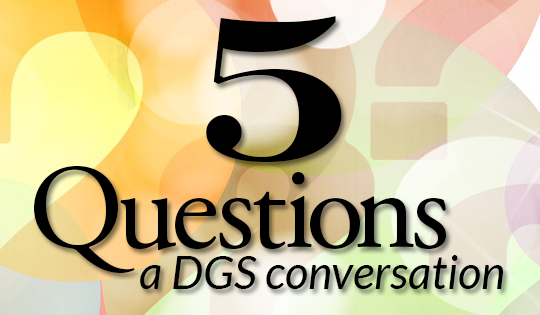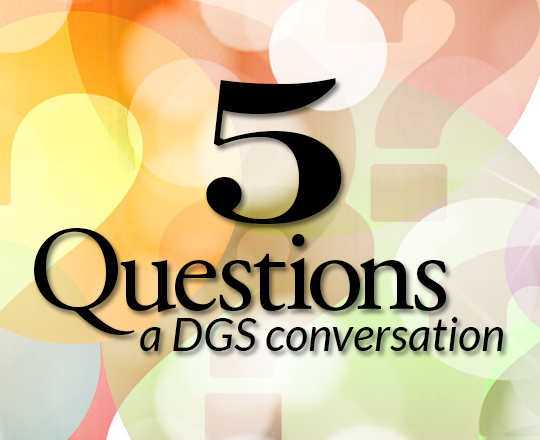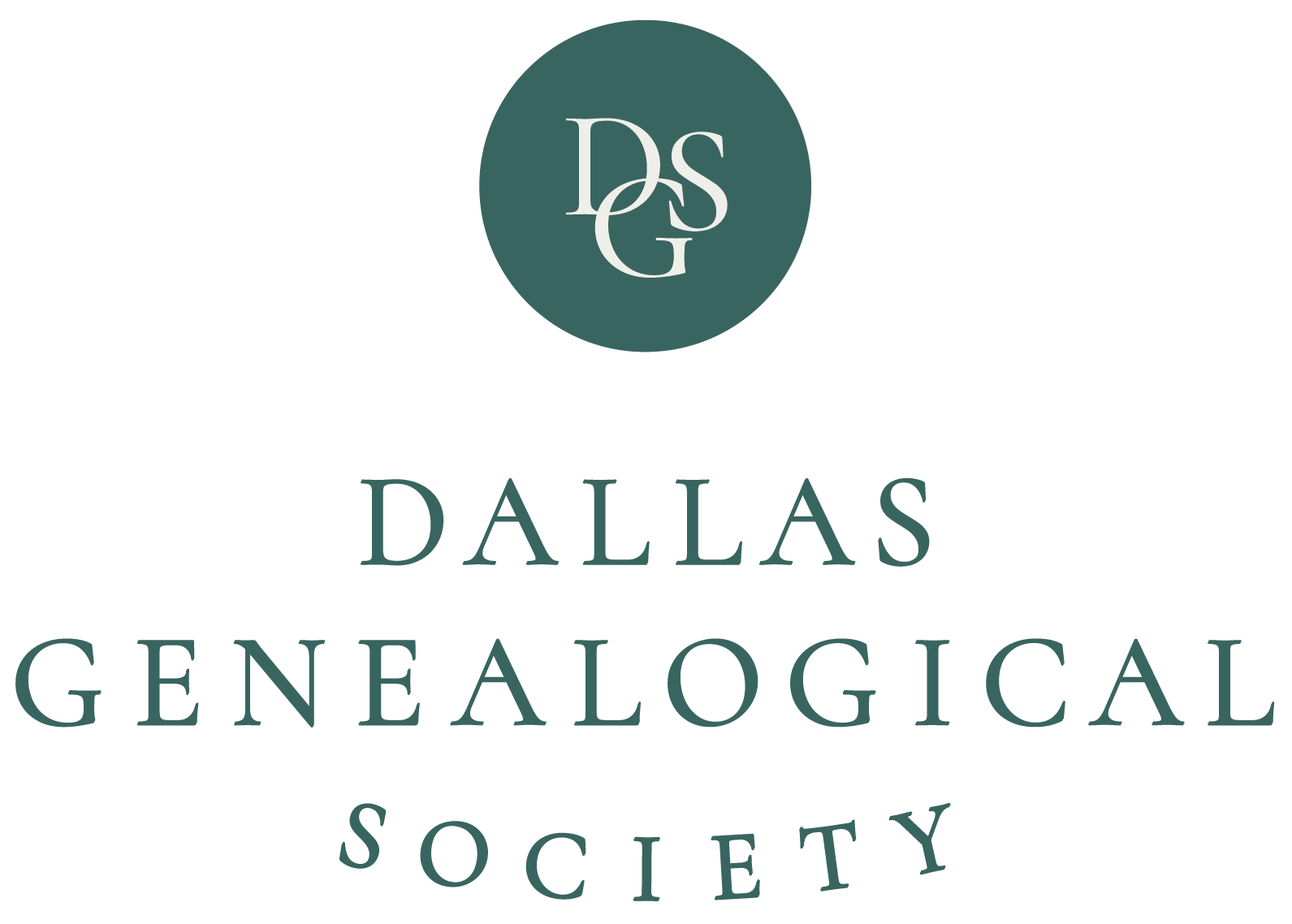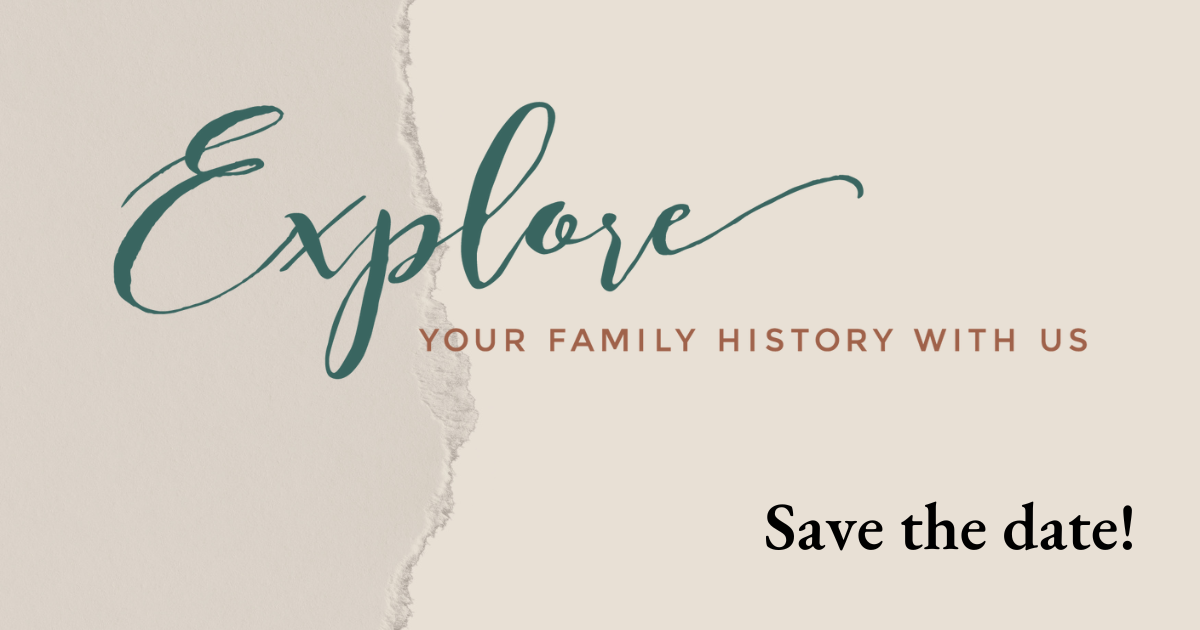Five Questions: Why Join a Genealogical Society?


In his recent presentation to the Texas State Genealogical Society, Curt Witcher said “I believe that genealogical, historical, ethnic societies are very, very important to the field and what we do for the success of family history, of family stories, and it’s also important for the field.” Likewise, Cindy Ingles, at this year’s Summer Seminar said “Social networking is what you do at a genealogical society or conference or seminar.” So, how do a few of our DGS members feel?
The participants
- Susan Rainwater is the current DGS Director of Finance and member of the Website and Newsletter subcommittees.
- Terry Turner is the incoming Secretary of the DGS and a member of the African American Genealogical Interest Group.
- Barbara Coakley is the current DGS Director of Volunteer Coordination.
- Kim Edge is the current DGS Director of Membership.
- Kathleen Murray is a former DGS Vice President and member of the DGS Branding Committee.
Question 1:
Rainwater: How and when did you get started with genealogy as a hobby, profession, or obsession?
Turner: In the last ten to fifteen years, genealogical research has become all three in my life: a hobby, obsession, and profession. My interest peaked about 2013 into a hobby while in seminary studying family ministry. During 2014, I joined Ancestry.com, and genealogical research became a passion that I do daily. And since 2018, it has been a profession as I have written a book on the subject and helped others research their ancestral families.
Coakley: An envelope of family papers was found in my grandmother’s dresser. No one knew who the woman was so I decided to find out.
Edge: I subscribed to Ancestry in 2009, but I did not get started researching in earnest until 2014. I submitted a DNA sample in 2012, being inspired by Finding your Roots. I am the family member who keeps the memorabilia, particularly the photographs.
Murray: I got started with researching my family history about 20 years ago. I had two prods. My husband had started researching his ancestors and was ordering microfilms from the Family History Library in Salt Lake City and spending evenings reviewing them at the local Family History Center. He encouraged me to do the same. As a first step, I went through some of my mother’s “notes” about her family history, which were essentially had drawn trees with names, dates, places, and other information. This was my first introduction to many of these people and I was curious to discover more about them.
Question 2:
Rainwater: What caused you to join the Dallas Genealogical Society?
Turner: Dallas has been my home for the past thirty-four years. During this time, I started researching my family and discovered that both sides of my family migrated through Texas before moving to Oklahoma. My desire to know my ancestors’ life led me to the Genealogy Department of the Dallas Library. Here many lost doors to my past were found. The library’s extensive resources, educational opportunities, and seminars held by the society led to my joining DGS.
Coakley: I enjoyed the events and wanted to support the society.
Edge: I was told about the Dallas Public Library Genealogy Division from a consult with a genealogist from American Ancestors/NEHGS, and subsequently found the Dallas Genealogy Society. It was a classic genealogy moment; I wish I knew that sooner!
Murray: Many of my ancestors were from Ireland and in 2009 the Society hosted a seminar entitled “Irish Research” featuring Paul Milner. There was a price break for Society members, and that was one incentive to join. Plus, it appeared that the Society offered volunteer opportunities to get involved in genealogical research activities with other family history researchers and that appealed to me.
Question 3:
Rainwater: Are you a member of any other genealogical societies?
Turner: Yes, I have joined genealogical societies in every state where I discovered my ancestors held a residence. They include Georgia, Oklahoma, and Texas.
Coakley: Yes, a number of national societies, state, county, and the local societies in the areas where my ancestors lived – including NEHGS, NGS, German Genealogical Society, Texas State Genealogical Society, Illinois State Genealogical Society, Monroe County IL Genealogical Society, Allegany County, MD Genealogical Society, Ross County OH Genealogical Society, St Louis Genealogical Society, Chicago Genealogical Society, Genealogy Friends of Plano Libraries, Moniteau County MO Historical Society, and the Utah Genealogical Society (editor’s note – WOW!). I turn to them for information when I’m working on a new problem. They are the experts in their area.
Edge: The first society I joined was American Ancestors/NEHGS, as my research is New England focused.
Murray: Currently I have memberships in the St. Louis Genealogical Society and the Ulster Historical Foundation. I grew up in St. Louis and have roots there on my paternal side. I have admired that Society’s educational programs and digital preservation projects. I also have roots in Northern Ireland and have attended an in-depth research program the Foundation offers in Belfast. I also value their unique, niche online resources and publications, both physical and digital.
Question 4:
Rainwater: Have you ever volunteered for any DGS activity?
Turner: Yes, I have given presentations at DGS monthly meetings and assisted in providing training sessions at the Dallas Library for new family history researchers. I also wrote several articles for the DGS newsletter and participated in the Black Sheep Writing Contest last year.
Coakley: Yes, my position on the board is to find volunteers. I also help out with the tech team and where ever I’m needed at monthly meetings and seminars.
Edge: I assist with programs and events offered by DGS, and I am looking forward to the next event planned for North Texas Giving Day, which will be held at the DPL, Genealogy Division. There will be fun for all!
Murray: My first involvement with DGS was about 2009 as a speaker at a monthly educational program. In 2015 I became Vice President-Fundraising and during my tenure in that position I was involved in many DGS activities from seminar management to community activities such as setting up a booth at the North Texas Irish Festival. Over the years I’ve been involved in various committees, projects, and teams.
Question 5:
Rainwater: Do you think membership in a genealogical society has value in today’s largely online world?
Turner: Memberships in a genealogical society serve to support ancestral research, education, and training while using the cutting edge of technology. For example, many online educational events and activities are available weekly, monthly, and yearly. Also, the advantages of watching these presentations after the event are significant for those who cannot attend in person or remain the whole time. Finally, without active memberships, genealogical societies will cease to exist.
Coakley: I do. It is a great way to meet people interested in genealogy. Societies put on programs both virtual and in-person. Special interest groups focus on specific aspects that I want to work on to become a better researcher.
Edge: I believe societies offer opportunities for all levels of genealogists; a dedicated group focused on augmenting genealogy skills and forging good habits, helping members gain knowledge from experts, which helps cut down on those time-wasting internet research activities!
Murray: I think genealogical societies can offer a great deal of value to family history researchers, but that society membership is becoming less important to researchers. That said, I do think people like to contribute, both financially and as volunteers, to genealogical societies in support of specific projects or programs, as well to “give back” or “pay forward” for help and support they have received in the past or will receive in the future.
Each participant was given the five questions and responded with five answers. The conversation has been lightly edited.

